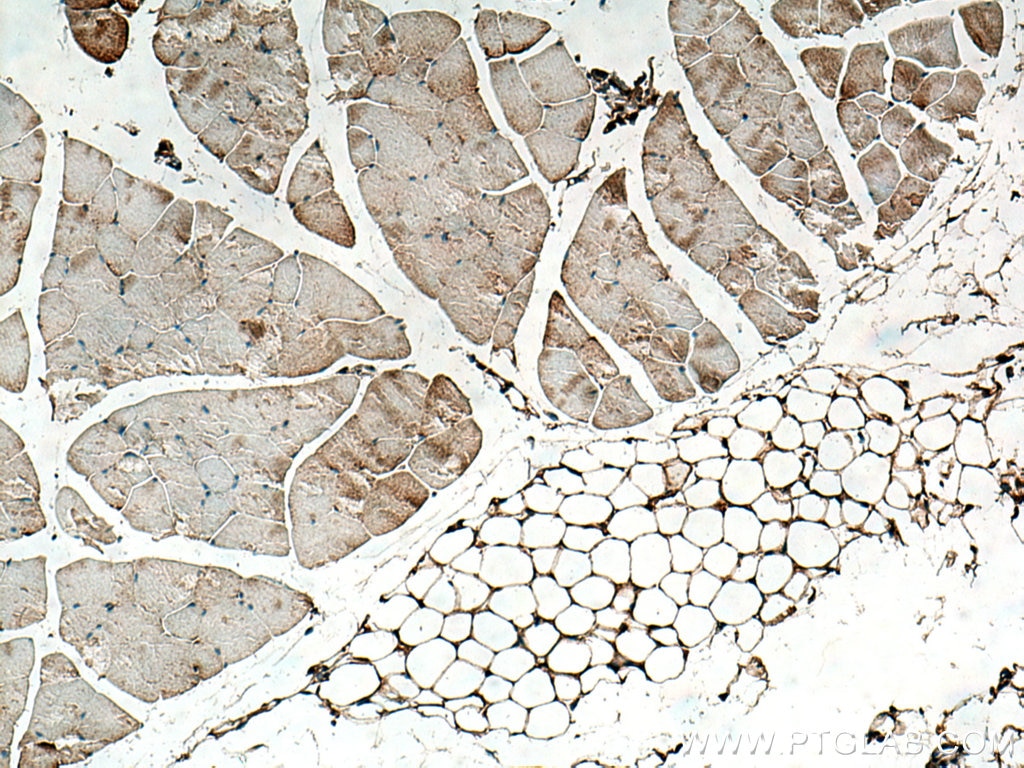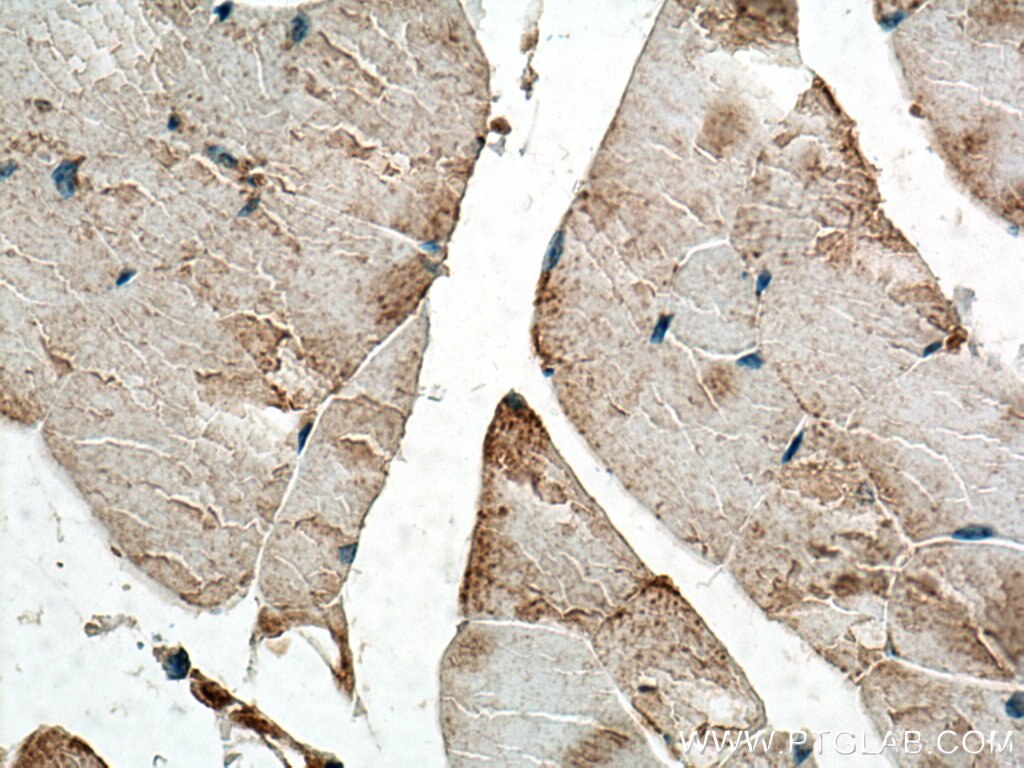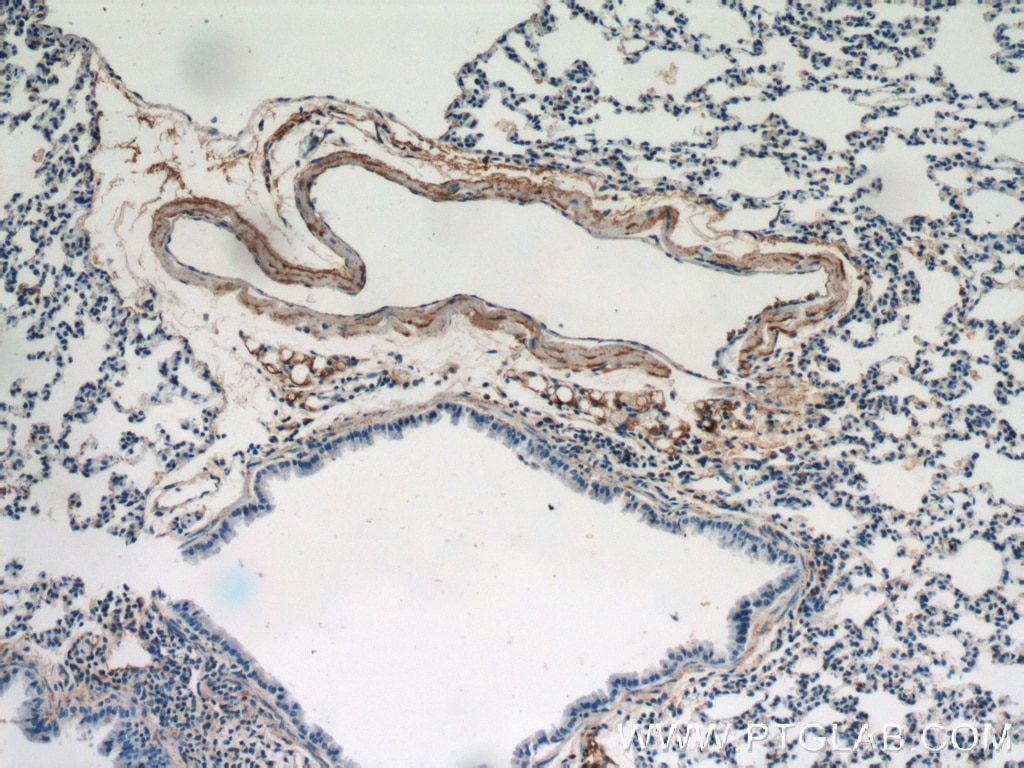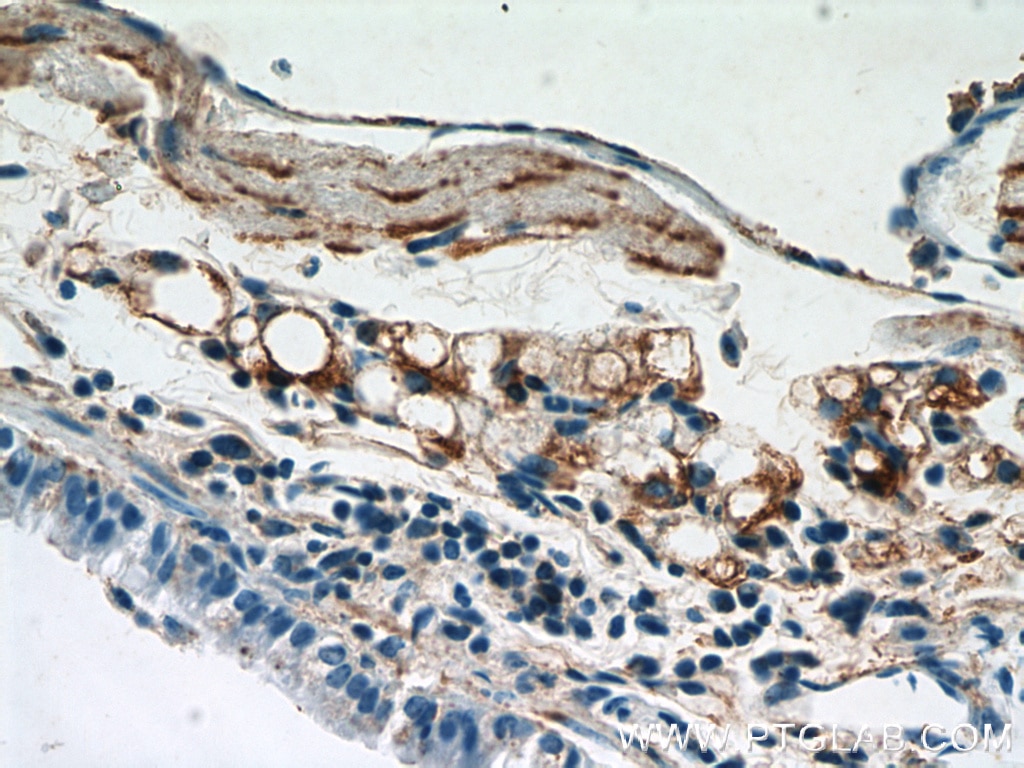Tested Applications
| Positive IHC detected in | mouse skeletal muscle tissue, mouse lung tissue Note: suggested antigen retrieval with TE buffer pH 9.0; (*) Alternatively, antigen retrieval may be performed with citrate buffer pH 6.0 |
Recommended dilution
| Application | Dilution |
|---|---|
| Immunohistochemistry (IHC) | IHC : 1:50-1:500 |
| It is recommended that this reagent should be titrated in each testing system to obtain optimal results. | |
| Sample-dependent, Check data in validation data gallery. | |
Published Applications
| WB | See 8 publications below |
| IHC | See 9 publications below |
| IF | See 11 publications below |
Product Information
20277-1-AP targets Osteocalcin in WB, IHC, IF, ELISA applications and shows reactivity with mouse samples.
| Tested Reactivity | mouse |
| Cited Reactivity | human, mouse, rat, rabbit |
| Host / Isotype | Rabbit / IgG |
| Class | Polyclonal |
| Type | Antibody |
| Immunogen |
Peptide Predict reactive species |
| Full Name | bone gamma carboxyglutamate protein 1 |
| Calculated Molecular Weight | 11 kDa |
| GenBank Accession Number | NM_007541 |
| Gene Symbol | Osteocalcin |
| Gene ID (NCBI) | 12096 |
| RRID | AB_11232596 |
| Conjugate | Unconjugated |
| Form | Liquid |
| Purification Method | Antigen affinity purification |
| UNIPROT ID | P86546 |
| Storage Buffer | PBS with 0.02% sodium azide and 50% glycerol, pH 7.3. |
| Storage Conditions | Store at -20°C. Stable for one year after shipment. Aliquoting is unnecessary for -20oC storage. 20ul sizes contain 0.1% BSA. |
Background Information
Osteocalcin (Bglap1), also named as Bglap2, Bglap, BGP, OC, OG1 and mOC-A, belongs to the osteocalcin/matrix Gla protein family. Bglap1 constitutes 1-2% of the total bone protein. It binds strongly to apatite and calcium. The antibody is specific to mouse Bglap1.
Protocols
| Product Specific Protocols | |
|---|---|
| IHC protocol for Osteocalcin antibody 20277-1-AP | Download protocol |
| Standard Protocols | |
|---|---|
| Click here to view our Standard Protocols |
Publications
| Species | Application | Title |
|---|---|---|
Small Honeycomb Bionic Graphene Oxide Quantum Dot/Layered Double Hydroxide Composite Nanocoating Promotes Osteoporotic Bone Regeneration via Activating Mitophagy | ||
Sci Adv Metabotissugenic citrate biomaterials orchestrate bone regeneration via citrate-mediated signaling pathways | ||
J Nanobiotechnology Injectable hydrogels with ROS-triggered drug release enable the co-delivery of antibacterial agent and anti-inflammatory nanoparticle for periodontitis treatment | ||
Acta Biomater A composite membrane with microtopographical morphology to regulate cellular behavior for improved tissue regeneration | ||
ACS Appl Mater Interfaces Hydrogel Enhanced Organoid Multidirectional Differentiation via Yap/Tead4 Mechanotransduction for Accelerated Tissue Regeneration | ||
Stem Cell Res Ther Ionizing radiation-mediated dendritic cell maturation exacerbates inflammatory response of bone marrow mesenchymal stem cells and impairs osteogenesis in radiation-induced jaw injury |










